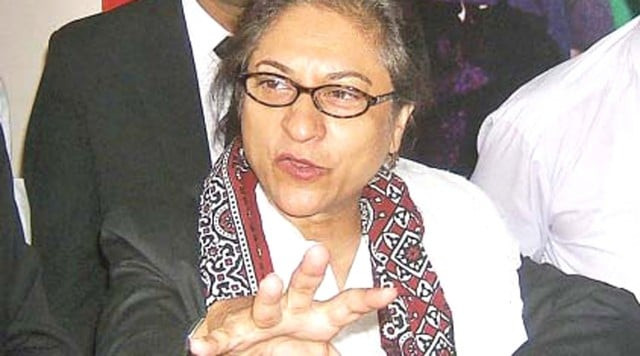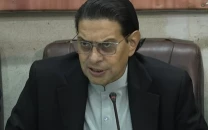Ad-hoc judges: Asma for govt action against extensions
SCBA, PBC convey concerns on ad-hocism in judiciary to the chief justice.

Ad-hoc judges: Asma for govt action against extensions
Talking to the media later, Jahangir said she would urge the government to use its power to block the appointment of ad-hoc judges.
She hoped that both the retired judges would excuse themselves and not take oath as ad-hoc judges, otherwise the government would wield its influence.
“If the government had appointed ad-hoc judges, it would have been accused of doing so to further its own objectives,” Jahangir said, adding the SCBA wanted to eliminate ad-hocism in the judiciary and therefore they were opposed to the judges’ reappointment.
She said they did not meet the chief justice to conclude a deal but to present the lawyers’ point of view regarding judges’ ad-hoc appointment.
PBC executive committee, in a unanimous resolution on Thursday, maintained that the move to re-appoint Justice Ramday, who retired on February 17, and Justice Jaffery, who retired a few months ago, in a full-court meeting, in violation of article 182 of the Constitution amended under the 19th Amendment, was unprecedented.
It may be added here that a full court meeting under the chairmanship of Chief Justice Iftikhar Muhammad Chaudhry on February 14 passed a resolution for a one-year extension in Justice Ramday’s term as well as for the appointment of Justice (retd) Rahmat Hussain Jafferey as an ad-hoc judge.
The Supreme Court subsequently cancelled the full court reference in honour of Justice Ramday on the eve of his retirement on February 17.
According to article 182 of the constitution as amended in the 19th amendment, if an ad-hoc judge is appointed within three years of his retirement, the chief justice would have to send the proposal to the president with binding effect after consulting the judicial commission only.
Published in The Express Tribune, February 19th, 2011.



















COMMENTS
Comments are moderated and generally will be posted if they are on-topic and not abusive.
For more information, please see our Comments FAQ